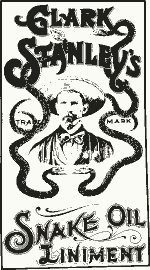In the article "The New Consumer Frugality," by Egol/Clyde/Rangan from strategy+business magazine, the authors restate and expand opinions I made in earlier posts, including Fear and the American Consumer, wherein I supposed a world where fear, uncertainty and doubt (FUD) was the primary motivation of consumers and again in this post, where I suggested that there was a new normal of a higher savings rate, less consumer spending on credit, and general 'new religion' on main street.
The authors state that according to a Booz and Company study, fewer than 20% of consumers will return to their pre-recession spending levels. (It's nice to be right.)
The authors state: "A new frugality, characterized by a strong value consciousness that dictates trade-offs in price, brand, and convenience, has become the dominant mind-set among consumers in the United States — and probably in other wealthy countries as well. Two-thirds of American shoppers are cutting coupons more frequently, buying low price over convenience, and emphasizing saving over spending. Per capita consumption expenditure has declined across demographic groups. Consumer sentiment remains weak. These trends are not going to change, no matter the pace of economic change."
Then again, given that more than half this country's GDP is consumer spending, it'd be good to be wrong in this instance.
Still, what does this New Frugality mean for marketers?
Repeating a mantra of marketers weathering each recession, the authors state that we should continue aggressive marketing in a recession - but that unlike earlier times, that the return to 'better days' will not be marked by a return to normal strategies in product, pricing, promotions or distribution. The increased emphasis on, and redefinition of, value (defined as a combination of price, brand, and convenience) will drive decisions across all consumer groups - and this, combined with the community and transparency brought about by the rise of Web 2.0 means that credibility and performance will be paramount to consumers; views of this value judgment less impacted by status positioning and clever brand advertising than by collective market experience. And while brand awareness and loyalty are proven out by the experience, the post-recession consumer will seek out distribution channels that offer the best measure of that brand combined with price and convenience.
So two main lessons of the quoted study involve pricing strategy and promotions strategy: When looking for pricing solutions, the identification and segmentation of customers is, as one might expect, paramount. Price only to maintain profitable return on the most loyal customer segment where value continues to be perceived. As I stated last December, consider pricing strategies and tiers for various channels to deliver the best value as judged by each segment using different channels.
The second lesson involves MarCom. Develop promotional strategies that articulate the convenience (in distribution), pricing tiers and brand selection at all consumer/brand touch points. As the authors remind us, this will require marketers to embrace new advertising and promotion capabilities, particularly those around new digital tools that engage consumers at all points in the buying decision and encourage desired purchasing behavior.
The New Frugality is more than a new economic normal. It is a sea change. We now find ourselves in the 'frugal age' - and it will define us as much as the digital, space, or industrial ages did before.

![Reblog this post [with Zemanta]](http://img.zemanta.com/reblog_e.png?x-id=7bb12107-e9a6-46b6-9945-98f405d0eb51)

![Reblog this post [with Zemanta]](http://img.zemanta.com/reblog_e.png?x-id=3083dd6c-9dfb-467a-92f9-a2a1ac4d287a)

![Reblog this post [with Zemanta]](http://img.zemanta.com/reblog_e.png?x-id=8fa97e09-7268-4f2d-89ce-c4dd77115e5c)